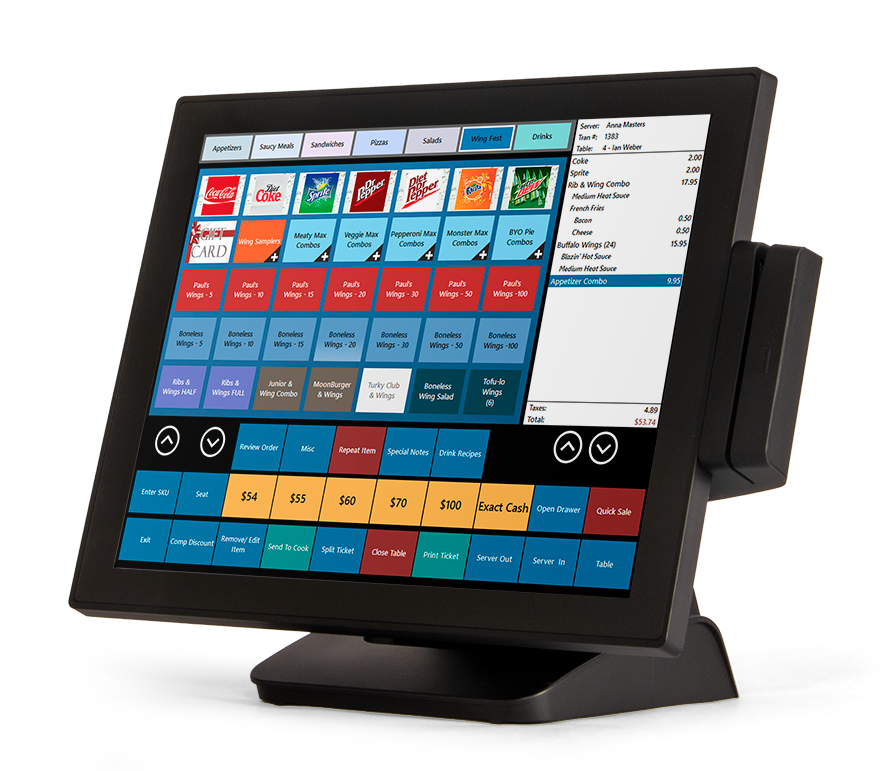
As consumer preferences evolve, convenience and efficiency have become key pillars of the in-store shopping experience. Retailers are increasingly turning to technology-driven checkout solutions to meet these demands and stay competitive in a rapidly transforming retail landscape. Innovations like AI-powered POS systems, self-service kiosks, and contactless payment technologies are revolutionizing the checkout process, making it faster, smarter, and more engaging.
The Role of Technology in Checkout Transformation
Traditionally, checkout lines have been a major pain point for customers. Long waits, slow service, and human errors can lead to dissatisfaction and lost sales. Technology-driven checkout addresses these issues by automating processes and empowering customers to take charge of their shopping journey.
Key technologies driving this transformation include:
- AI-Powered POS Systems: These systems use machine learning to optimize pricing, track inventory in real-time, and analyze customer purchase data for personalized promotions.
- Self-Service Kiosks: Providing an intuitive, customer-led transaction experience, these kiosks allow shoppers to scan, pay, and complete purchases without assistance.
- Contactless Payment Solutions: Mobile wallets, biometric payments, and NFC-enabled cards offer speed and security, reducing friction at checkout.
- Smart Shopping Carts: Equipped with sensors and integrated POS systems, smart carts enable customers to scan and pay for items directly while shopping.
Benefits of Technology-Driven Checkout
Implementing technology-driven checkout solutions benefits both retailers and customers, creating a win-win scenario:
- Reduced Wait Times: MPOS Self-service kiosks and mobile payment options minimize queues, particularly during peak hours.
- Enhanced Customer Experience: Personalized offers, loyalty rewards, and seamless payment options contribute to a more satisfying shopping experience.
- Increased Efficiency: Automated systems reduce human errors, speed up transactions, and free staff to focus on customer service.
- Higher Sales: With AI-driven upselling and cross-selling, retailers can maximize revenue at the point of sale.
- Operational Insights: Advanced POS systems provide real-time analytics on sales trends, inventory levels, and customer preferences, enabling better decision-making.
How Retailers in the UK Are Adopting Technology
Retailers across the UK are embracing these advancements to enhance their in-store experiences. For example:
- Grocery Stores: AI-powered POS systems in the UK help supermarkets manage inventory, predict demand, and suggest complementary items at checkout.
- Convenience Stores: MPOS self-service kiosks empower customers to make quick purchases, catering to time-sensitive shoppers.
- Department Stores: Integrated loyalty programs in POS systems provide personalized discounts, fostering customer loyalty.
- Fast-Food Outlets: Touchscreen kiosks allow diners to customize their orders and pay instantly, improving speed and accuracy.
Challenges and Considerations
While technology-driven checkout offers numerous benefits, retailers must address certain challenges to ensure successful implementation:
- Cost: Initial investment in advanced POS systems and kiosks can be significant, though the long-term ROI often outweighs the expense.
- Training: Staff must be trained to manage and maintain new technologies, as well as assist customers unfamiliar with self-service options.
- Data Privacy: Retailers must comply with strict regulations to protect customer data collected by AI systems.
- System Reliability: Regular maintenance and updates are essential to avoid downtime or technical issues that could disrupt operations.
The Future of Checkout Technology
The evolution of checkout technology is far from over. Emerging trends promise to further enhance the in-store experience:
- Biometric Authentication: Fingerprint or facial recognition technology will allow customers to pay securely without cards or cash.
- AI-Driven Voice Assistance: Smart kiosks with voice recognition will guide customers through the checkout process and answer questions.
- IoT Integration: Connected devices will enable real-time communication between shelves, inventory systems, and checkout terminals.
- Augmented Reality (AR): AR-powered kiosks could offer interactive product displays and virtual try-ons at the point of sale.
Conclusion
Technology-driven checkout solutions are revolutionizing the retail experience, empowering customers and streamlining operations. By adopting innovations like AI-powered POS systems in the UK and MPOS self-service kiosks, retailers can enhance efficiency, boost customer satisfaction, and gain a competitive edge. As technology continues to evolve, the future of in-store shopping will become increasingly seamless, personalized, and engaging, ensuring that both retailers and customers benefit from these advancements.





Leave a Reply